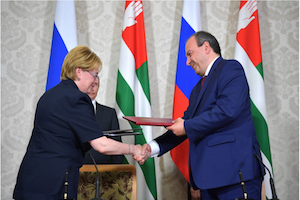Russia Rehearses Military Intervention in Central Asia and the Caucasus
By Roger N. McDermott
November 17, 2017, the CACI Analyst
While much international attention has focused upon Russia’s joint strategic exercise with Belarus, Zapad 2017 in September, in its aftermath Moscow also staged important operational-strategic exercises on a wider scale across the South Caucasus and Central Asia. Not only was the geographical scope of these exercises greater than Zapad 2017, but their various vignettes and scenario details provide glimpses into Moscow’s planning and modelling of future conflict on its periphery.
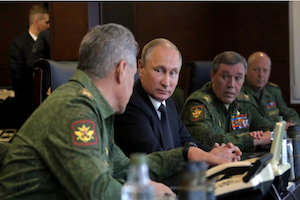
Turkmenistan's Gas Export Dilemma
By Dmitry Shlapentokh
November 15, 2017, the CACI Analyst
At first glance, Turkmenistan’s decision in January 2017 to stop selling gas to Iran was a minor episode in the context of an otherwise friendly relationship between Tehran and Ashgabat, as indicated by several meetings of high Iranian and Turkmen officials following the clash over gas deliveries. However, the tension with Iran could imply serious problems for Turkmenistan and lead to increasing dependence on Beijing, regardless of all Ashgabat’s maneuvering. Turkmenistan’s fallout with Iran also limits the ability of both the West and the South to access Central Asian gas and facilitates an increasing Chinese influence in this part of Eurasia, providing additional opportunities for China’s resurrection of the Silk Road.
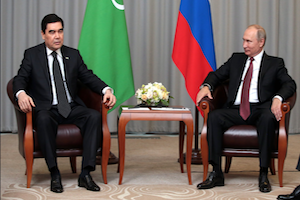
Tensions Remain around Georgia's Breakaway Regions Nine Years After Five-Day War
By Natalia Konarzewska
October 26, 2017, the CACI Analyst
In August, Georgia commemorated the ninth anniversary of its five-day war with Russia over the breakaway regions of Abkhazia and South Ossetia and the 25th anniversary of the war in Abkhazia. Although years have passed since the hostilities, the conflicts remain unresolved while the political situation around the two de facto entities as well as Russia-Georgia relations remain tense. Russia’s President Vladimir Putin visited Abkhazia and reiterated Russia’s military support for the region. In the preceding months, Russia increased its military pressure on Georgia by conducting large-scale military exercises in South Ossetia and Abkhazia. In parallel, Russia continues the illegal demarcation of the so-called frontier between Georgian-controlled territory and the separatist regions, moving the occupation line further into Georgian territory.
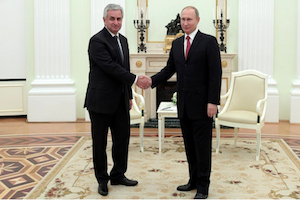
Kadyrov, Moscow and Rohingya
By Emil A. Souleimanov & Huseyn Aliyev
October 24, 2017, the CACI Analyst
In late August, Chechnya’s ruler Ramzan Kadyrov issued several statements on his Instagram profile appealing to fellow Muslims to support publicly the case of persecuted Myanmar (Burmese) Muslims, Rohingya, while prompting Russian authorities to take an international stand on their behalf. Shortly thereafter, unapproved mass demonstrations, inspired or organized by Kadyrov, took place in downtown Moscow and Grozny, during which siloviki treated protesters unexpectedly gently. Kadyrov went so far as to make a controversial statement challenging Russia’s international stance on the issue. Kadyrov soon softened his tone, yet his appeals were unprecedented – even by the standards of Chechnya’s strongman. They outraged many in Russia, pointing to Kadyrov’s impunity not only for actions on the domestic and federal scenes, but increasingly also for meddling in Russia’s international affairs.
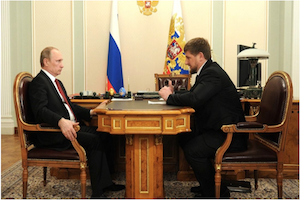
Abkhazia's Diplomacy: Foreign Relations Beyond Russia
By Andreas Pacher
October 2, 2017, the CACI Analyst
70 percent of Abkhazia’s diplomatic notes do not address its patron state Russia, but are sent to the few other states that have recognized its independence. It is surprising that countries like Nauru or Vanuatu obtain so much sustained attention from Abkhazia. The contested territory is usually perceived to rely solely on Russia. However, by exercising courtesy towards all partner countries, Abkhazia wants to present itself as a polity that is capable of behaving as a real sovereign state within the international community, projecting the image of normalized statehood that the region seeks to attain. Any attempts to thoroughly understand post-Soviet breakaway territories should pay closer attention to their external ties beyond their patron.
